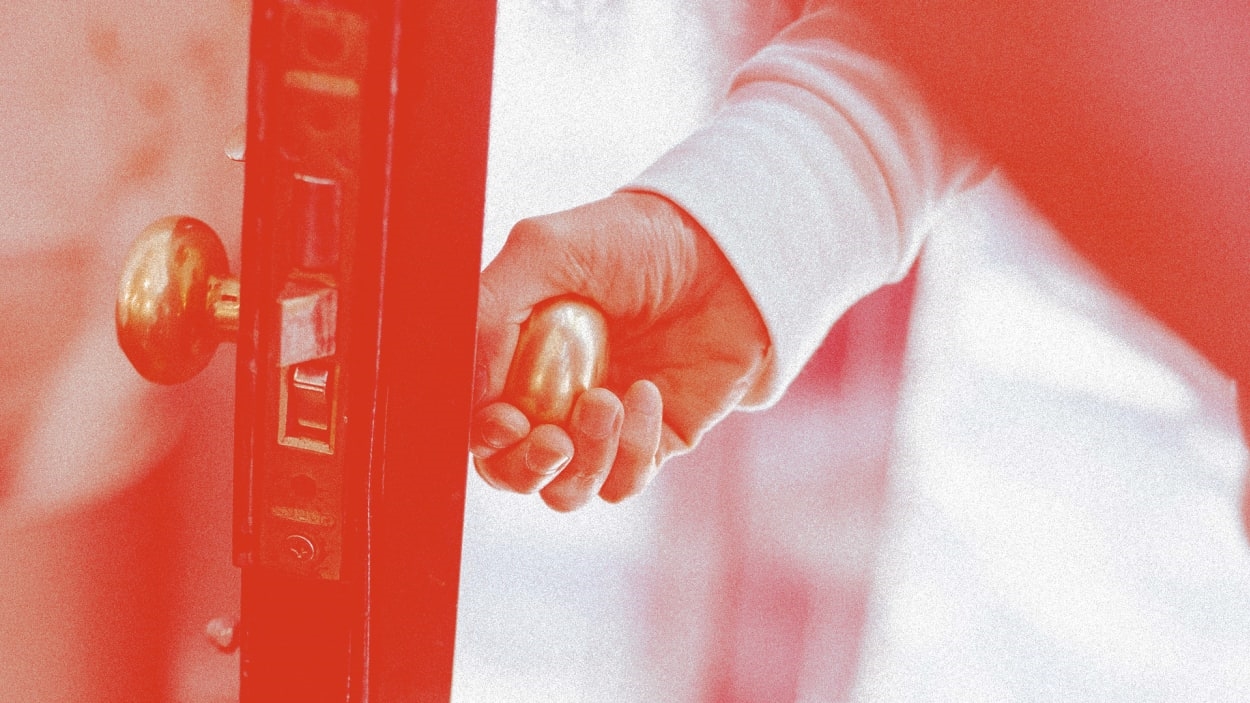Since its 2008 founding, Airbnb has prospered on the assumption that people will be comfortable staying in the homes of strangers. But the rental behemoth still has some trust issues among its customers—and its executives were more than willing to talk about those struggles with attendees at this week’s Collision conference in Toronto.
“Their biggest fear is stranger danger,” says Naba Banerjee, director of trust and safety, in a conversation with Fast Company after a panel that featured her and Tara Bunch, global head of operations. Banerjee recalls a recent conversation with her father in India, who expressed his reluctance to host by admitting, “Well, if I knew more about the person.”
That panel had earlier provided crowdsourced confirmation of that anxiety: While an overwhelming majority of audience members raised their hands after Banerjee asked if they’d stayed at an Airbnb, only a tiny minority held up their hands when she then asked if they’d feel comfortable hosting Airbnb guests in their own homes.
So while the lodging platform’s recent renovations of its business have included an extensive redesign and a reboot of the room-rental option, Airbnb has also been working on the security measures that are supposed to make people feel at home with the idea of staying in other people’s homes as well as hosting other people in their own abodes.
The San Francisco-based company took one arguably overdue step in November to reduce that anxiety by launching an identity verification policy, which will usually involve uploading a picture of a government-issued ID and possibly confirming that with a selfie. On Thursday, it announced that by June, every guest and primary host will need to comply to keep booking stays.
Airbnb has also been working to glean more intelligence from its guest and host reviews—what Banerjee calls “our system of trust”—through both human and machine-learning analysis.
“We usually have humans first looking at it, learning from data and educating the models,” she says. “We are trying to look at signals associated with the review: Was the price drastically changed at the last minute?”
Banerjee adds that Airbnb has also stepped up its scrutiny of listings themselves—fake ones represent a longstanding nuisance on the platform.
“We want to make sure that it’s a real home, that the photos were not scraped from Zillow,” she says. Does that mean it now runs a reverse-image search on every picture? Not wanting to give fraudsters too many hints about how Airbnb spots scams, Banerjee answers, “I will not tell you exactly what we do.”
Subpar accommodations can also get a listing erased even if no fraud is involved. Airbnb also recently announced that its “targeted and holistic approach to quality enforcement” had led it to yank more than 12,000 listings globally since April, after having already dumped 81,000 listings in 2022. As of the end of 2022, Airbnb had 6.6 million active listings placed by more than 4 million hosts.
Banerjee adds that Airbnb is using the fruits of this ongoing analysis of ratings to “give nudges to hosts,” explaining that they may not realize patterns of complaints have emerged. “Yes, they’re probably reading the reviews, but they don’t know that some of these reviews are stacking up and they should take action.”
Airbnb, however, does not let you filter searches for listings to show only those compliant with local registration requirements (the company is challenging New York’s new mandate in court, calling it too complex and invasive of hosts’ privacy). Banerjee offers to relay my feature request to the search team.
A legit listing can also go bad without any misconduct by a host if fraudsters take over the account. In one recent example, scammers hijacked a dormant account and rented a house in Philadelphia to unsuspecting guests—whom the current homeowner found waiting outside on Christmas night. Airbnb did not remove the fake listing until after the Philadelphia Inquirer asked about it.
Banerjee cites account takeovers as another area where the company is stepping up its scrutiny, but its login system lacks some common defenses against hacking. Although Airbnb will verify strange login requests with a code sent to a phone number registered on an account, it still doesn’t offer app-based two-factor authentication, much less support for the new and highly secure passkeys standard.
That’s a weirdly prolonged oversight for a company so detail-obsessed it had its own font designed.
Banerjee’s own advice to Airbnb guests and hosts is to stick to its site and app for all lodging transactions and interactions—many scams have begun with a call or text that Airbnb won’t know about. “People try sometimes to take someone off the platform, and our models are checking for that happening,” she says.
Last year, Airbnb added a “Solo Traveler Safety” feature to its app that provides safety tips, offers suggestions about questions to ask of hosts, and makes it easier to share an itinerary with friends back home; it now works in more than 50 languages.
Banerjee, who notes that staying in Airbnbs is the one workable option for family travel with her five kids and one dog, emphasizes how much of this involves “constantly learning.”
And that, she says, includes reading the gripes shared offsite at places like Reddit’s r/AirBnB forum—Airbnb uses tools to scan them and look for patterns.
“Hear your social media feedback,” she says. “These are people who kind of want to help, help our community get better.”
(7)
Report Post







